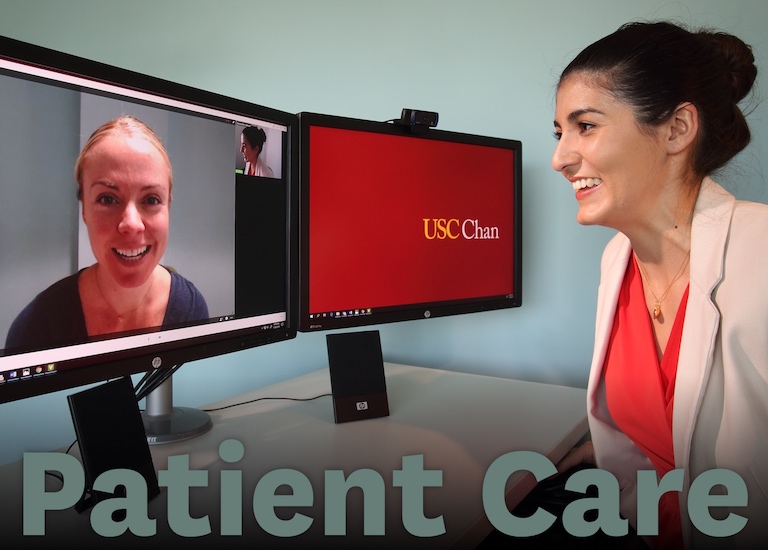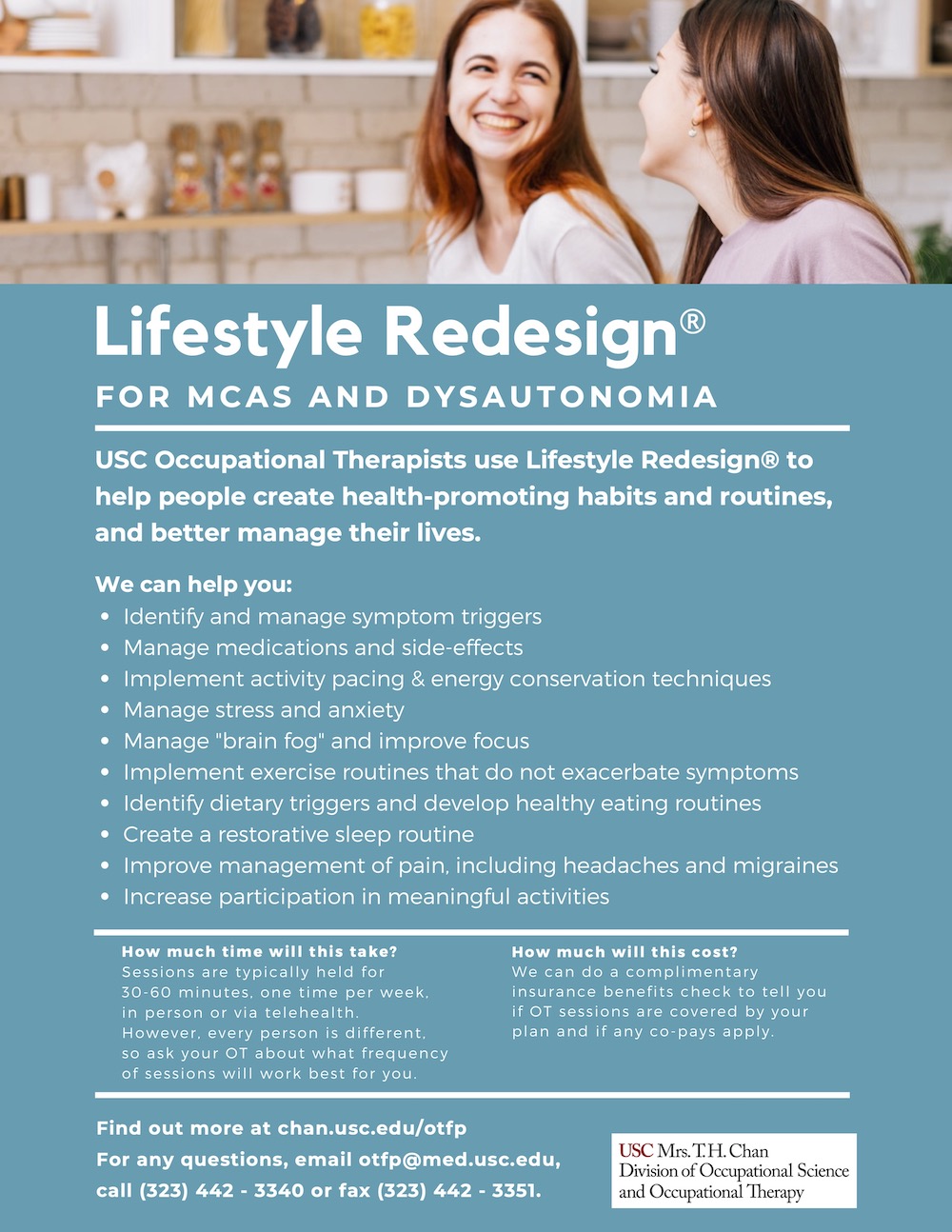
Lifestyle Redesign® for MCAS and Dysautonomia
Navigating life with Mast Cell Activation Syndrome (MCAS) and/or dysautonomia (e.g., POTS) can significantly impact physical, mental, and emotional wellbeing. Understanding and identifying symptom triggers and effectively managing fluctuating symptoms can be a confusing, challenging, and isolating process. This can be compounded by “invisible symptoms” including fatigue and brain fog which can interfere with participation in home, school, or work roles and routines. Additionally, managing commonly linked diagnoses, such as Ehlers-Danlos Syndrome (EDS), anxiety, and depression can contribute to challenges with health management. As a result, individuals can be overwhelmed by their healthcare experience due to the need to manage many healthcare appointments and communicate health-related needs to loved ones.
Since MCAS and dysautonomia are impacted by lifestyle and environmental factors, a holistic, comprehensive approach to care is recommended. Our occupational therapists collaborate with individuals to create sustainable lifestyle changes and improve participation in meaningful activities. Our program aims to improve self-management skills to reduce the frequency and/or severity of symptom flares, increase one’s sense of empowerment, and improve quality of life.
We can help you to:
- Track your symptoms and identify your triggers
- Learn medication management and self-management strategies
- Implement activity pacing strategies and conserve energy to improve management of fatigue
- Manage stress, anxiety, and depression through healthy coping strategies and self-regulation techniques
- Use time management strategies to improve “brain fog” and establish health-promoting daily routines
- Manage dietary triggers while developing healthy eating routines
- Identify and implement a safe and effective physical activity routine that does not exacerbate symptoms
- Modify your environment and utilize adaptive equipment to reduce triggers
- Create a restorative sleep routine
- Develop self-advocacy skills in home, workplace or school, and healthcare contexts
- Increase participation in meaningful leisure and community activities
Brochure
View/download the Lifestyle Redesign for MCAS and Dysautonomia brochure.
Get more information/contact us
To make an appointment, or for more information, contact us today!






